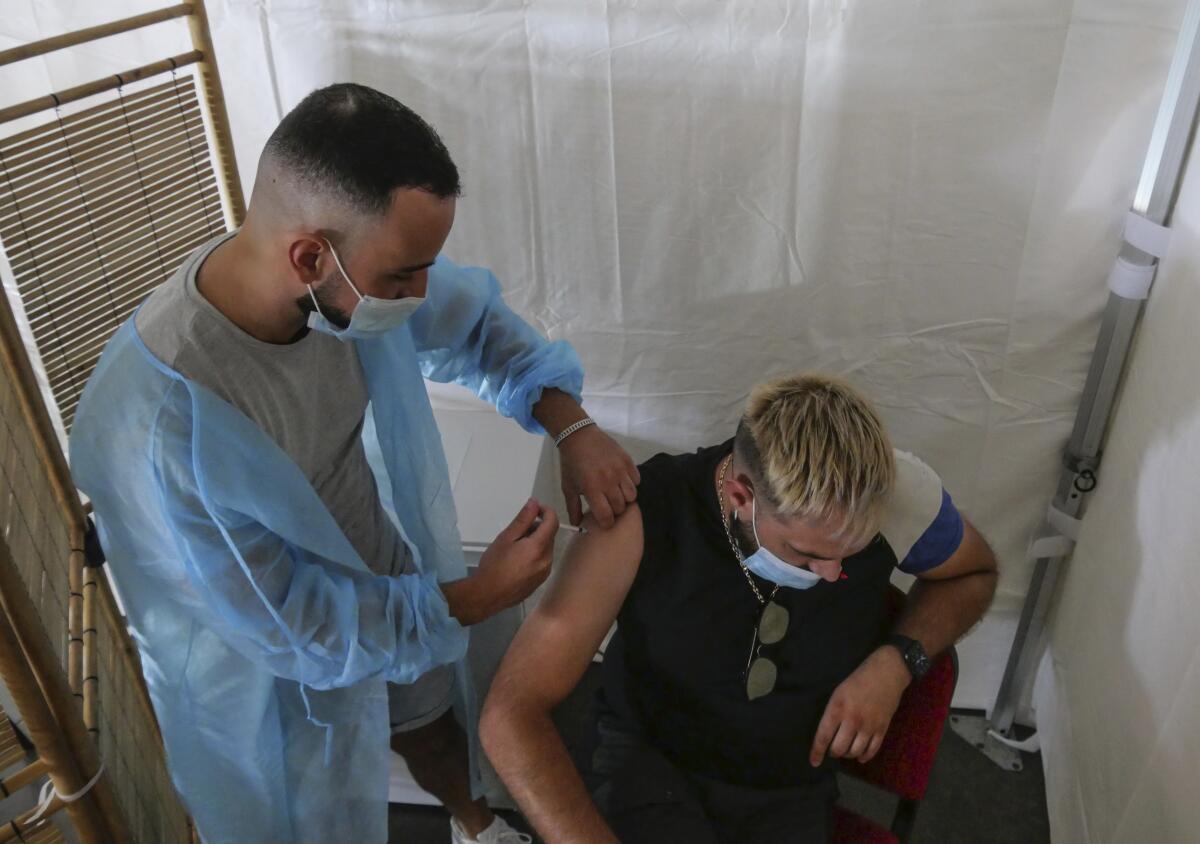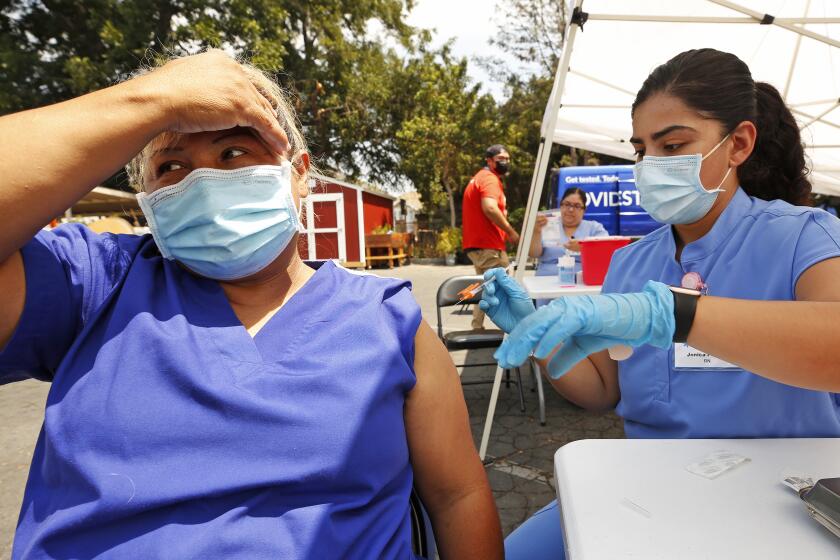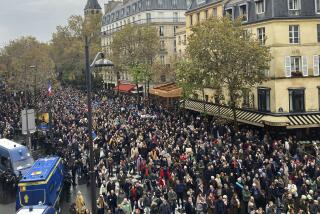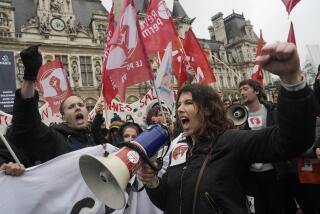Far-right activists and others march against French COVID-19 rules

- Share via
PARIS — Some 160,000 people, including far-right activists and members of France’s “yellow vest” movement, protested Saturday across the country against a bill requiring everyone to have a special pass to enter restaurants and mandating COVID-19 vaccinations for all healthcare workers.
Similar protests were held in neighboring Italy.
Police fired water cannons and tear gas on rowdy protesters in Paris, although most gatherings were orderly.
Legislators in France’s Senate were debating the bill Saturday after the lower house of Parliament approved it Friday, as coronavirus infections and hospitalizations are rising. The French government wants to speed up vaccinations to protect vulnerable people and hospitals, and avoid any new lockdown order.
Most French adults are fully vaccinated and multiple polls indicate a majority of French people support the new measures. But not everyone.
Protesters chanting, “Liberty! Liberty!” gathered at Bastille plaza and marched through eastern Paris in one of several demonstrations Saturday around France. Thousands also joined a gathering across the Seine River from the Eiffel Tower organized by a former top official in Marine Le Pen’s anti-immigration party.
Though most protesters were calm, tensions erupted on the margins of the Bastille march. Riot police sprayed tear gas on marchers after someone threw a chair at an officer. Other projectiles were also thrown. Later some protesters moved to the Arc de Triomphe and police used a water cannon to disperse them.
Guillermo Cozar waited months to get his vaccine because, he reasoned, he’d already had COVID last fall and didn’t think he would get sick again.
Marchers included far-right politicians and activists as well as others angry at President Emmanuel Macron. They were upset over a French “health pass” that is now required to enter museums, movie theaters and tourist sites. The bill under debate would expand the pass requirement to all restaurants and bars in France and some other venues.
To get the pass, people need to be fully vaccinated, have a recent negative test or have proof they recently recovered from the virus.
French lawmakers are divided over how far to go in imposing health passes or mandatory vaccinations but infections are rising quickly. More than 111,000 people in France have died of COVID-19, and the country is seeing about 20,000 new infections a day, up from just a few thousand a day in early July.
More than 2 billion people worldwide have been vaccinated and information about COVID-19 vaccines is now widely available, but many protesters said they felt they were being rushed into something they’re not ready to do.
Céline Augen, a secretary at a doctor’s office, is prepared to lose her job under the new measure because she doesn’t want to get vaccinated.
Ayoub Bouglia, an engineer, said: “We need to wait a little bit before the French people can decide…. I think a part of France is always going to be unwilling and that blackmail and threats won’t work.”
In Italy, thousands of protesters gathered in Rome, Milan, Verona and other cities Saturday, protesting the government’s decision to require a “Green Pass” to access indoor dining, local fairs, stadiums, cinemas and other gathering places.
In the northern city of Verona, several thousand people marched down the main shopping street, chanting, “No Green Pass!” and “Freedom!” They included families with young children, medical doctors who said they are risking their jobs not to get vaccinated, and people who likened the Green Pass decision to decisions by fascist dictatorships.
The demonstrations proceeded peacefully and dissipated into summer evening crowds.
Despite the vocal opposition, Italy’s new requirement, effective Aug. 3, has led to a boom in vaccine appointments in the country, where so far nearly half of the eligible population is fully vaccinated.
More to Read
Sign up for Essential California
The most important California stories and recommendations in your inbox every morning.
You may occasionally receive promotional content from the Los Angeles Times.











